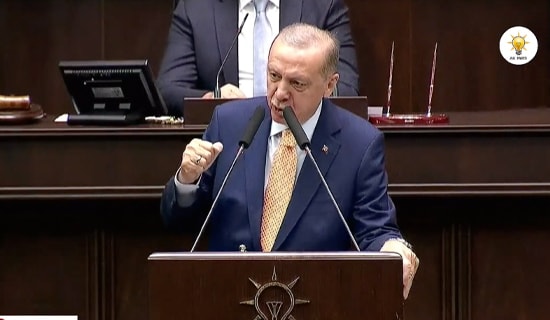The prohibition against women driving has been a matter of public debate in Saudi Arabia for years.[1] The ban is based on a fatwa issued in October 1990 by the Senior Cleric's Council – the kingdom's top religious body – which stated that women were not allowed to drive and that a woman caught doing so must be punished. Following the publication of this fatwa, the Saudi Interior Ministry issued an official decision forbidding women from driving. In accordance with this decision, driving licenses are issued only to men in Saudi Arabia, and a woman caught driving is arrested and/or fined, as has happened on several occasions in the past. [2] The Transportation Ministry spokesman in the east of the kingdom said recently that a woman caught driving without a license would be charged with a traffic offense, and so would her guardian or the person who allowed her to drive. He stressed that, if a woman has a driver's license issued abroad, it is not valid in Saudi Arabia.[3]
Recently, however, calls for allowing women to drive have been intensifying, especially on the part of Saudi women activists, who stage protests and lead campaigns on this issue. On September 21, 2013, a group of women activists headed by Eman Al-Nafjan launched an online campaign under the slogan "Women Driving a Car – a Matter of Choice, Not Coercion." A communiqué posted online as part of this campaign, which invited readers to sign their support, collected 12,000 signatures within a week. This communiqué called for recognizing women's right to drive, pointing out that no religious law forbids this and that the ban is based solely on traditions and customs. The campaign initiator, Eman Al-Nafjan, called on women throughout the kingdom to protest on October 26, 2013 by driving cars. [4] She also posted on her YouTube channel videos of Saudi women driving. The campaign has numerous followers on Twitter, who have posted many supportive messages, as well as videos of Saudi women driving, under a special hashtag created for the campaign (october26driving). Following the campaign, dozens of articles on the topic appeared in the Saudi press, the majority of them backing Saudi women's right to drive. However, on September 30, 2013, it was reported that access to the campaign's website had been blocked. [5]
Concurrently, the struggle for women's right to drive reached the Saudi Shura Council for the first time. In a letter they submitted to the Shura Council on September 10, 2013, a group of 14 Saudi businesswomen, academics and activists demanded that the council discuss the problems faced by the kingdom's women, including the ban on women driving.[6] In an October 8, 2013 Shura Council session, three councilwomen presented a study they had done on the topic, and its finding that the ban had no basis in Islamic shari'a or in the Saudi Constitution. They requested that the council debate the issue, but their request was denied.[7]
It should be mentioned that the Saudi religious establishment is divided over the issue of women driving, and even the position of the religious police on this matter is not completely clear. There have recently been reports that the religious police had announced it would not arrest women caught driving. However, on October 22, 2013, some 200 officers from the religious police, preachers and sheikhs and gathered in front of the King's court offices in Jeddah to protest against the October 26 women driving campaign. This places King 'Abdallah in a conflict between the social demand to allow women to drive and the religious establishment's opposition to this.
As mentioned, the current campaign is not the first of its kind in Saudi Arabia. In November 1990, 47 Saudi women were arrested after they drove cars to protest the fatwa banning women driving, [8] and in 2008 a warning was issued to Saudi women's rights activist Wajeha Al-Huweidar after she published a video of herself driving a car around the kingdom.[9] The biggest campaign to date was launched by Saudi women's rights activist Manal Al-Sharif in June 2011. She circulated a petition calling to lift the ban, which was submitted to the Saudi king with 3,500 signatures. Al-Sharif also initiated a Facebook campaign in which she and other activists filmed themselves driving cars and uploaded the videos to YouTube. They were arrested for their activity, and released only after they signed an affidavit promising not to repeat the offense.[10]
This report reviews the latest Saudi campaign in favor of women's driving, the arguments on the topic in the Shura Council and religious establishment, and the articles on it in the Saudi government press.
Campaign Calls For Women To Drive On October 26, 2013; Women Activists: We Have Broken Through The Barrier Of Fear
Campaign initiator Eman Al-Nafjan expressed hope that masses of Saudi women will respond to her call and drive cars on October 26, thereby voicing the wish of the Saudi woman, and activist Nasima Al-Sada announced that she and 20 other women will carry out this plan of action in the east of the kingdom.[11] Activist Najla Hariri said that the campaign proves that Saudi society is ripe for the idea and accepts it, and is only waiting for the right opportunity to put it to practice. She noted that officials in the Transportation Ministry and Religious Police have promised that their officers will not oppose the women drivers on October 26, and called upon them to make sure this happens.[12]

The campaign slogan: "Women Driving a Car – a Matter of Choice, Not Coercion" (oct26driving.com)
The campaign was widely supported on Twitter, by well-known women activists and also by members of the public, both men and women. Manal Al-Sharif wrote on her Twitter account: "The bad news [is that] the website of the 'October 26 Driving' [campaign] was shut down last Saturday. The good news [is that] its shutting down is a recognition of its impact, now that over 12,000 [people] have signed the [online] communiqué." [13]



The "Yes2Drive" Twitter account opened by campaign supporters
Messages on the Oct26driving Twitter account:
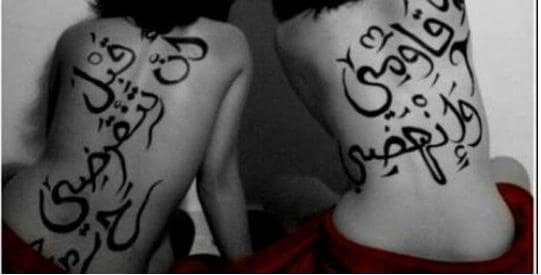
"Resist and rebel, before you are completely wiped out"
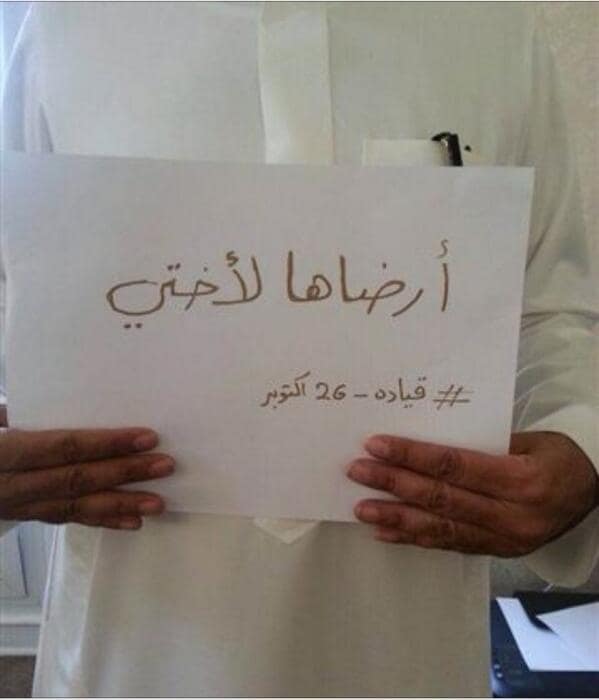
"I want my sister to drive"
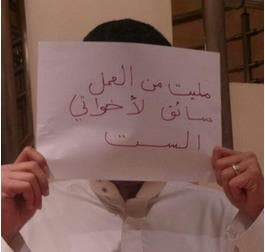
"I'm tired driving my six sisters around"
Though the campaign's target date is October 26, some women started their protest earlier, and have already filmed themselves driving and posted the videos on YouTube. For one of these videos, see MEMRI TV Clip No. 4010:
According to activist 'Aziza Al-Yousuf, this proves the women's determination and shows that they have indeed broken through the barrier of fear.[15]
It should be noted that there have been cases where Saudi women with a drivers' license issued abroad or even without a license drove a vehicle in an emergency. In January 2010, the Saudi media reported on a 15-year-old girl who drove the family jeep and saved her father, her brother and several other relatives from drowning in a flash flood in Jeddah. The story, which was widely reported in the media, renewed the debate on women's driving.[16]

Malak Al-Mutairi, who drove a jeep and rescued her family in a flood (Al-Riyadh, Saudi Arabia, January 6, 2010)
Saudi Religious Establishment Split Over Women Driving
The Saudi religious establishment is divided on the matter of women driving. While some clerics support it, others object fiercely, claiming that it would bring harm such as the exposure of women's faces, or women coming into contact with men. In response to the renewal of the public debate on women driving, religious police director Sheikh 'Abd Al-Latif Aal Al-Sheikh declared that shari'a law does not forbid women to drive, but that it is not within his authority to change Saudi policy on the matter. He said that, since his appointment a year ago, the religious police has not been arresting women seen driving, but denied reports that it has recently told its officers not to arrest them.[17]
The Religious Police Protests Against The Campaign
Though the religious police director said that women driving did not contravene the shari'a, on October 22, four days prior to the protests planned for October 26, some 200 officers from the religious police, preachers and sheikhs gathered in front of the royal court offices in Jeddah to express their opposition to the women's driving campaign.[18] One of them, Sheikh 'Abd Al-Rahman Al-Mahmoud, said: "We came here [to discuss] many issues, especially our opposition to the Westernizing [of Saudi Arabia] and in particular the Westernizing of the [Saudi] woman and her demand for various rights."[19]

Religious police sheikhs protest against the women's driving campaign in front of the king's offices in Jeddah (Al-Hayat, London, October 23, 2013)
Sheikh Nasser bin Suleiman Al-'Omar, who also attended this gathering, said: "We have come to [the offices of] the ruler to clarify how serious the [present] stage is, because if the conspirators of the women's driving [campaign] want to enter [people's] homes by the back door, the sheikhs want to enter them through the front door" (that is, if the campaign activists act to achieve their aims through informal channels like the internet, then the sheikhs, unlike them, go through the formal and proper channels, i.e., the state institutions). He added: "The sheikhs have come from across the kingdom to meet with the ruler and the senior officials, in order to explain the danger that is facing the state..."[20]
An unusual response to the October 26 campaign came from senior Saudi sheikh and legal expert Saleh Al-Luhaidan. In an interview with the Saudi e-daily sabq.org, he called on the campaign activists to take a realistic look at the matter, and to see that it will have negative repercussions. He said that driving "directly affects [a woman's] ovaries and causes the pelvis to be pushed upward, and therefore most women who drive cars continuously have children with various birth defects..."[21] For excerpts from his interview, see MEMRI TV Clip No. 4011:
Saudi Sheikh: The Campaign Will Break Down The Barriers Preventing Women From Driving
In contrast, former Mecca mosque imam Sheikh 'Adel Al-Kalbani tweeted that he believes that Saudi women's rights activists will succeed in breaking down the barrier put up in recent years by sheikhs issuing fatwas forbidding them from driving.[22]

Sheikh 'Adel Al-Kalbani's tweet
Particularly explicit support for women driving was voiced by Sheikh Ahmad bin 'Abd Al-'Aziz bin Bazz, after the girl Malak Al-Mutairi saved several lives by driving the family jeep during a flood. Al-Bazz, who is the son of the late Saudi mufti Sheikh 'Abd Al-'Aziz bin Bazz (1912-1999) who issued the 1990 fatwa prohibiting women from driving, stated that Islam granted women freedom of movement and that his father's fatwa was no longer relevant.[23]
Saudi Columnists: Time To Let Women Drive
The renewal of the women's driving campaign, and Sheikh Al-Luhaidan's criticism of it, have revived the public discourse on the issue. The official Saudi press published numerous articles criticizing Al-Luhaidan and emphasizing the benefits that women drivers could bring to the Saudi family and to society. Al-Luhaidan's statements were also criticized on Twitter, and the official Saudi daily Al-Madina polled readers on the issue.[24] At the same time, several articles expressed reservations regarding giving women permission to drive, claiming that Saudi society is not quite ready for it.
Al-Luhaidan's Statements – Mental And Medical Ignorance
In her column in the Saudi government daily Al-Watan, liberal Saudi columnist Halima Muzaffar claimed that Al-Luhaidan's statements were indicative of mental and medical ignorance; she stated that women drivers were a necessity nowadays: "I can't believe I'm writing an article on this topic in 2013. Despite all the global experience with women driving since the invention of the automobile, and with women [even] becoming [airplane] pilots and ships' captains [nowadays], and despite the fact that billions of women are experienced drivers, and despite the advancement of science and medical research, a sheikh comes out and says that [driving] affects their ovaries, and... pushes the pelvis upwards. If this is true, then why does sitting in the passenger seat or in the back seat not do the same? And if this is true, should women be prevented from sitting? Imagine women never being allowed to sit down with the aim of protecting their ovaries and pelvises, so that they can give birth to Saudi chicks every day [like chickens]...
SUPPORT OUR WORK

"The real problem is not [Al-Luhaidan's] opinion, which was [published] in one of the newspapers, but his insistence on it, which revealed his cognitive and medical ignorance... The issue of Saudi women driving is a matter of time, because today's economy and society are pressing the issue. Even the mahramin [male relatives who serve as the woman's chaperones] who yesterday opposed their wives and daughters being allowed to drive today seek the implementation of this decision, because of its familial and economic benefits whenever a father cannot drive everyone at the same time and cannot afford a hired driver...
"Times have changed and people have become more aware of their interests, and they will not tolerate those who think them stupid. Leave Saudi women's 'ovaries' and 'pelvises' alone. They know their own affairs better than you do."[25]

Response on Twitter to Al-Luhaidan's comments: "Those who oppose women driving have failed to even prove their position, and are talking about matters they know nothing about – and have invented this silly ovaries theory." (Twitter.com/FarisAbaalkhail, October 5, 2013)
Women Driving Would Benefit The Saudi Family And Society
Columnist Muhammad Al-Saqa claimed in the Saudi daily Al-Iqtisadiyya that women driving would benefit the Saudi family and society and would make it possible for the country to do without foreign laborers as drivers: "There is a longstanding disagreement between supporters and opponents of women driving. Its opponents say that [women driving] would open the door to harassment of women and deviation from the straight path, while its supporters think that the current situation harms women as well, because they travel with the family driver or a taxi driver – a strange man – and that if they could drive on their own, they would help themselves and their children, and could go to work without being exposed to this forbidden situation...
"There is clearly some confusion among [all] the customs, the traditions and the religious [directives] on this issue. All over the world, Muslim women drive cars, and we must properly consider these matters and not close the door to the many benefits [that women driving could bring] for fear that something [religiously] forbidden could occur.
"The ban on women driving in Saudi Arabia causes many women to be unemployed because they cannot drive to work or even look for a job. Women driving would be very beneficial to the Saudi family and society, and the state could rid itself of some foreign laborers. Allowing Saudi women to drive is a matter of time, no more and no less."[26]
The Ban On Women Driving Comes At A High Price
Al-Arabiya TV director 'Abd Al-Rahman Al-Rashed wrote in the London-based Saudi daily Al-Sharq Al-Awsat that the price paid by the Saudi government and society because of the ban on women driving is only increasing: "...Women driving cars is an old battle that has been postponed since the 1960s, perhaps in the hope that the right time to allow it would come, or that an electronic driverless car would [be invented] to spare the country this conflict.
"[But] over time the problem has increased rather than diminished, since the schism in society increased, as did the price paid by the government and society due to this prohibition. A million foreigners brought in to drive women around have made Saudi Arabia the country with the largest number of chauffeurs and the highest level of female unemployment! Whether or not the Saudi government accepts the recommendation of the three [councilwomen], women driving has become a major issue...
"The price of preventing women from enjoying this right is increasing, [both] economically and politically. The [Saudi] government sends tens of thousands of women to study at major universities abroad, including Harvard and Cambridge, and then prevents them from driving in the country! There is something wrong with this picture."[27]
Opposition To Women Driving: Saudi Society Is Not Yet Ready
In contrast to the many articles in support of women driving, the Saudi government press also published some on the other side of the issue, which claimed that Saudi society is not yet ready for this change because of the gender separation in the country. In his column in the Saudi daily Al-Riyadh, 'Abdallah Bakhshwin wrote that many logistical matters need to be settled before women could drive: "I will dare to say that I oppose women driving a car... First, there is no escaping the fact that the Interior Ministry must have an apparatus comprising only women for dealing with this issue... because how is a woman to be photographed [for a driver's license?]... The same is true regarding the question of who will conduct a woman's licensing test – or do we settle for girls and women who got driver's licenses abroad being allowed to drive [in Saudi Arabia]? And in case of accidents or moving violations – does the Interior Ministry set up a [parallel] apparatus comprising only women, to parallel the one for men? And how much would it cost [to set that up], from training to the launch of operations?... [Furthermore,] where can a woman drive to? And when? We can't let her drive just anywhere, anytime [she likes]..."[28]
In the daily Al-Jazirah, columnist Khaled Ibrahim Al-Hajji wrote: "...The issue of women driving a car is at the center of a fierce debate, and requires consolidated public opinion and widespread consent before society can approve it. [Former Saudi interior minister] Emir Naif [1975-2012] called the issue 'a social matter on which society will decide.' A [public] consensus has power and influence in this controversial topic, and it is the leaders of public opinion who are best suited to carrying out this task, because of their credibility and because their words are heeded in social circles.
"Readying society, both men and women, before women are placed in the driver's seat is a job for [public] opinion leaders. They are also tasked with consolidating the public ideological trend, and with explaining to the public that this is a social matter, not a religious matter."[29]
Shura Councilwomen Demand That Women Be Allowed To Drive
There have been attempts in the Shura Council to raise the issue of women driving, but it has been repeatedly dismissed and has never been properly addressed. On May 22, 2005, two Shura Council members, Muhammad bin 'Adballah Aal-Zalafa and 'Adballah Bukhari, submitted a recommendation that they said should be added to the transportation regulations, that women be allowed to drive just like men. Under the recommendation, women over 35 would be allowed to drive while accompanied by their husband or other relative; however, this recommendation was rejected.
Today, after 30 women have joined the Shura Council, some of whom have reiterated that they intend to promote the issue,[30] there have been renewed efforts to raise it in the Shura Council. In an October 8, 2013 Shura Council session, which dealt with the annual report on the performance of the Transportation Ministry, three female members, Haya Al-Mani', Latifa Al-Sha'alan, and Muna Al-Mashit, presented a study they had conducted on women driving that examined the issue from the religious, legal, and regulatory standpoints, and which found that women should be allowed to drive. They recommended that the Shura Council discuss these findings, but their recommendation was rejected. Council Spokesman Dr. Muhammad bin 'Abdallah Al-Mohanna explained that their request to debate this issue had been denied because it was not related to the issue under discussion, namely the Transportation Ministry's performance. He added that the study's findings would not be discussed by the council's transportation committee, either.[31] Shura Council Speaker Dr. 'Abdallah Aal Al-Sheikh said that the council had not denied the councilwomen's right to raise the issue for debate, but had transferred the issue to the relevant government body, in accordance with Article 31 of the Shura Council bylaws.[32]
When the study on women driving was presented in the Shura Council, Haya Al-Mani' said: "We all know that there is no religious or legal [basis] for a ban on women driving, because Article Eight of the kingdom's regime code stresses the principle of equality among people regardless of gender. In addition, Article Six of the regime code stresses the absolute observance of humanitarian rights, without gender discrimination."[33] Al-Mani' added that Saudi transportation regulations include nothing that prohibits women from driving because Article 36 of the [transportation] regulations explicitly sets out nine conditions for receiving a driver's license, and they do not include the applicant's gender."[34]
Al-Mani' further said that banning women from driving violates a religious ban on which all clerics agree – that is, the ban on a woman and her family being in the presence of a strange man, in this case, the family chauffeur. This, he said, is against the values of Muslim society and could place the woman and her children at risk of sexual harassment. He also criticized the fact that, while there are Saudi government ministers and Shura Council members who are women, and Saudi women who have won international science awards, Saudi women are still not allowed to drive.[35]
Shura Council member Dr. Thoraya 'Obeid, deputy chairman of the commission for human rights and petitions in the Shura Council, rejected the criticism of the demand to allow women to drive. She said, "This is a social matter, as King 'Abdallah has said [several times]... [Driving] is a symbol of the woman's right to go anywhere safely and securely... My brother Ibrahim, may he rest in peace, taught me how to drive when I was 20, before I received my academic degree, and this did not disconnect me from either my family or my responsibilities. Our women drive cars in the desert and in villages, and this does not detract from their worth or self-respect...
"Driving is an essential skill, just like any other essential skill that a woman needs to run her life and her family. We forbid women from driving not because our religion forbids it, but because tradition dictates it..."[36]
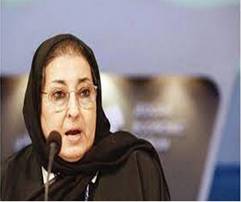
Shura Council member Dr. Thoraya 'Obeid (image: Al-Riyadh, Saudi Arabia, December 12, 2009)
Al-Arabiya Head: Demand By Female Shura Council Members – A New Phase
The councilwomen's recommendation to discuss the study's findings and its subsequent rejection by the council sparked comments in the Saudi government press. Columnists who supported the recommendation claimed that it is time for the Shura Council members to fulfill its role, and attacked its decision to reject the recommendation.
'Abd Al-Rahman Al-Rashed wrote in Al-Sharq Al-Awsat: "What is new here is not the demand to allow women behind the wheel, but the fact that those demanding this right are three female Saudi Shura Council members, and not... provocative women writers in the Saudi press... The surprise is that the council members [submitted an] official request. This is the actualization of their representative role as women and of the role of the Shura Council as a legislative body. In this issue we find a brave council and brave women...
"When King 'Abdallah bin 'Abd Al-'Aziz brought women into the Shura Council early this year, and appointed 30 women all at once – that is, 20% [of the total council members] – the decision caused a commotion in all circles of [our] conservative society. Some thought they were just beautiful brides, but they have been [among] the more [active] members in debates. Today, three of them dropped a resounding bomb by submitting a request to allow women to drive cars. This has become more than a discussion among a handful of intellectuals. This reminds the state of its duty to lead development, and in this capacity it could face a wave of justified protests and opportunistic counter-protests..."[37]
Female Saudi Liberals Disappointed By Shura Council's Rejection Of The Issue
In an article in the official Saudi daily Al-Jazirah, liberal female Saudi columnist Samar Al-Muqrin wrote that the Shura Council's rejection of the demand to allow women to drive proves that the council is still dominated by conservative thought: "The predominant thought of the Shura Council is still [stuck] in the era of banning satellite [TV channels] and cellphone cameras, and it cannot get past this phase, even after women have joined it... The council spokesman was quick to announce that the council refused to adopt the recommendation to allow women to drive, just as a few years ago it rejected the [2005] recommendation submitted by [former council member] Dr. Muhammad Aal-Zalafa...
"We all know that [the Shura Council] is an advisory council, but that doesn't mean that it can marginalize and devalue a comprehensive study on the claim that the recommendation [to allow women to drive] is not within the jurisdiction of the transportation department. We would expect the council spokesman to be clearer and to let us know whose jurisdiction it is to address the study by the Shura Council members dealing with women's [right] to move from place to place.
"This response is one of the reasons for the disappointment with this council, which should have agreed to discuss the study even if some members disapproved. At least that way we would feel like society's burning issues [are being addressed], even if [the council ultimately] did not decide to accept or reject the issue.
"Thus, the Shura Council members' study was buried, in a manner unbefitting it and unbefitting society..."[38]
*Y. Admon is a research fellow at MEMRI.
Endnotes:
[1] See MEMRI Inquiry & Analysis No. 402, "The Public Debate in Saudi Arabia on Women Driving November 13, 2007.
[2] Al-Quds Al-Arabi (London), September 29, 2013.
[3] Al-Sharq (Saudi Arabia), October 23, 2013.
[4] Oct26driving.com
[5] Al-Hayat (London), September 30, 2013.
[6] Al-Sharq (Saudi Arabia), October 4, 2013.
[7] Al-Riyadh (Saudi Arabia), October 9, 2013; Al-Watan (Saudi Arabia), October 11, 2013.
[11] Elaph.com, September 22, 2013.
[12] Al-Hayat (London), October 9, 2013.
[13] Twitter.com/@manal_alsharif, October 1, 2013.
[14] Twitter.com/fawziah1, September 28, 2013.
[15] Al-Hayat (London), September 30, 2013.
[16] Al-Riyadh (Saudi Arabia), January 1, 2013. See also MEMRI Special Dispatch No. 2769, "Son of Former Saudi Mufti: Women Should Be Allowed to Drive January 26, 2010.
[17] Elaph.com, September 22, 2013. The report that the religious police warned its employees not to pursue women drivers was published by the London daily Al-Hayat on September 19, 2013.
[18] Al-Hayat (London), October 23, 2013.
[19] Sabq.org, October 22, 2013.
[20] Sabq.org, October 23, 2013.
[21] Sabq.org, September 27, 2013.
[22] Twitter.com/abuabdelelah, October 10, 2013.
[23] See MEMRI Special Dispatch No. 2769, Son of Former Saudi Mufti: Women Should Be Allowed to Drive, January 26, 2010.
[24] Al-Madina (Saudi Arabia), October 6, 2013.
[25] Al-Watan (Saudi Arabia), October 2, 2013.
[26] Al-Iqtisadiyya (Saudi Arabia), September 21, 2013.
[27] Al-Sharq Al-Awsat (London), October 10, 2013.
[28] Al-Riyadh (Saudi Arabia), April 11, 2013.
[29] Al-Jazirah (Saudi Arabia), October 5, 2013.
[30] See MEMRI Inquiry & Analysis Series Report No. 986, Women's Rights in Saudi Arabia: Historic Nomination Of Women To Shura Council – Alongside Harsh Action By Regime Against Women's Rights Activists, June 21, 2013.
[31] Al-Watan (Saudi Arabia), October 11, 2013.
[32] Al-Hayat (London), October 22, 2013.
[33] Shura.gov.sa, March 1, 1992. For the full regulations, see: http://www.shura.gov.sa/wps/wcm/connect/shuraarabic/internet/laws+and+regulations/the+basic+law+of+government/
[34] For the full transportation code, see: http://www.rt.gov.sa/files/rt_policy.pdf
[35] Al-Riyadh (Saudi Arabia), October 9, 2013.
[36] 'Okaz (Saudi Arabia), October 12, 2013.
[37] Al-Sharq Al-Awsat (London), October 10, 2013.
[38] Al-Jazirah (Saudi Arabia), October 12, 2013.




